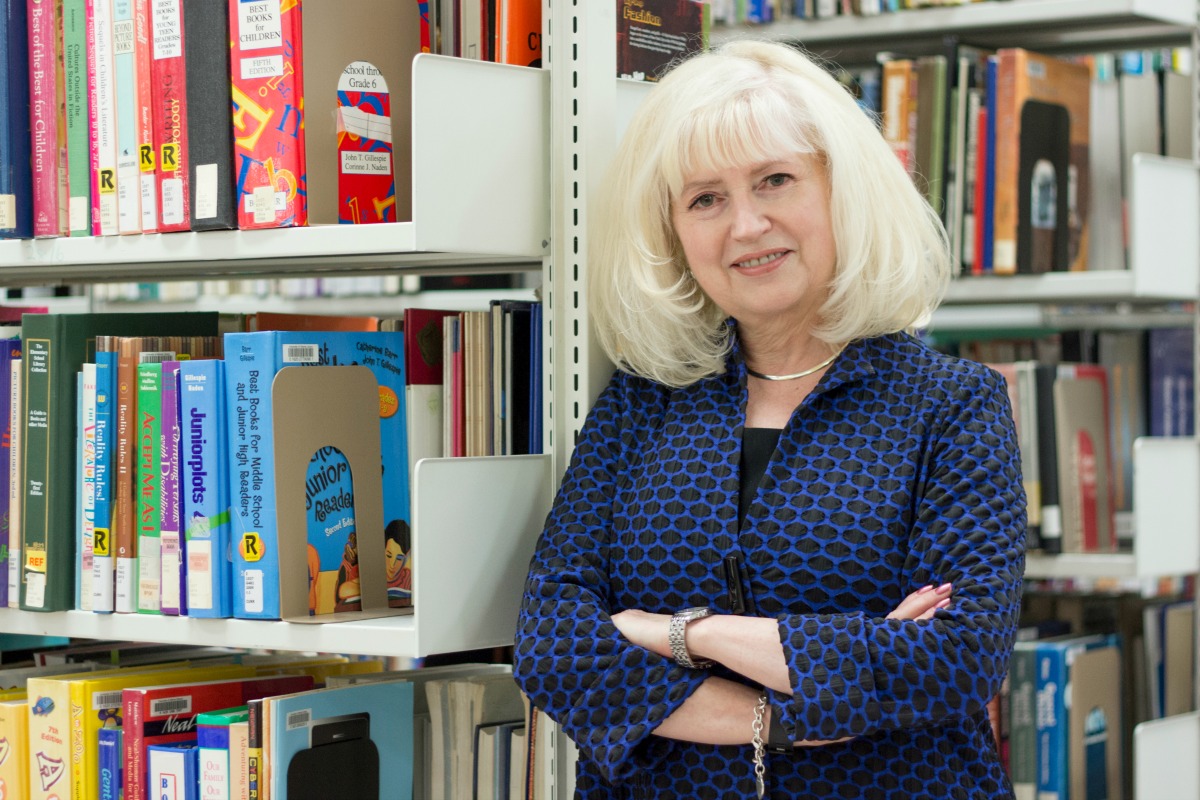When Linda Cook (‘74 BA, ‘75 BLS, ‘87 MLS) started as the Edmonton Public Library’s CEO in 1997, no new libraries had been built in 14 years. Libraries were considered old and tired—full of outdated, dusty books that were quickly being replaced by digital technology.
But Cook saw an opportunity. She saw EPL’s branches as community meeting places that could benefit from new technology rather than be threatened by it. That vision led to five new libraries, three rebuilt branches, countless new programs, and a complete overhaul of the EPL brand.
After 18 years at the helm, Cook retired from the EPL in 2015, but her schedule remains full—she serves on the boards of several organizations, including the Edmonton Police Foundation, the Telus Community Foundation, the Public Lending Right Commission, and the Edmonton North Primary Care Network. She is also an adjunct associate professor at the University of Alberta’s School of Library and Information Studies, a position she’s held since 1987.
Cook feels lucky to have stumbled into the library profession in the first place—it started with her taking just one English class, then pursuing a full degree, and later entering library studies because it seemed practical. It wasn’t until she was in the profession that she fell in love with it and saw the difference libraries could make in a community.
A library for the people
When she first joined the EPL, the institution’s approach had been to try to fly under the radar undetected; but Cook knew that was the opposite of what they should do. Cook really wanted self-checkouts, but in order to do that, they would require a $6-million buy-in—so they went to both the city and the province, and eventually both gave $3 million each. Those self-checkouts were the first across Canada in 2007.
“That was the beginning of the technology revolution. People embraced it right away,” says Cook. The new machines meant staff members could now be on the floor talking to people and helping them. It also meant new programs could be put into place, including helping seniors with new technology, implementing literacy programs and hiring greeters at the branches.
Cook remembers a single mom with a son in first grade who could not read. She couldn’t afford a tutor, so she took her son to a weekly Story Time at her local library. “I’ll always remember what this mom said,” says Cook. “She said: ‘I now have to force my son to go outside because all he wants to do is read. Your library made a difference in my son’s life.’”
Opening doors instead of closing them
As EPL’s branches grew in popularity, different challenges arose. Instead of being perceived as tired and old, the libraries were perceived by some as dangerous places—especially when a knife fight broke out in Sir Winston Churchill Square, near the downtown Stanley Milner Library. Even the police encouraged library staff to bar certain individuals from entering the facilities.
Cook refused. She knew it was a wider civic problem and that banning people would not solve anything. “And we thought, ‘We’re open, and the library is for everybody. So, what can we do to help these customers that need something a little different?” she recalls.
She decided to offer a program whereby social workers would help at-risk individuals with everything from securing housing to obtaining ID. After getting a three-year grant from Alberta Justice, Cook decided to make the program a permanent part of EPL’s offerings.
The Library of the Year
Under Cook’s leadership, the EPL could rightly claim that it was helping its clients in more ways than ever before, by embracing both social and technological changes.
In 2014, the EPL won the highest honour that can be bestowed in the library world—the Library of the Year award, presented by the Library Journal and Gale Cengage Learning. Cook has been the recipient of many awards, but this one was especially significant because it was the first time a Canadian library had won the international award.
But when asked what her proudest moment was as CEO, Cook doesn’t hesitate. “Something I wanted from the time I started was to have free memberships,” she says. She believed that while the $12 yearly fee seemed minimal, it was still a barrier for some people. Since EPL memberships became free, membership has gone up 40 per cent.
Over the last two decades, the EPL has changed its brand by physically changing its marketing and communications department and implementing programs that matched that new identity. From ever-growing digital content and speaker series to reading clubs and services for newcomers to Canada, Cook’s vision of the library as a public space where all people can share information in many forms is alive and well.
In recognition of her many contributions to the public library system and her continuing work in the community, Linda Cook will receive a Distinguished Alumni Award at the University of Alberta’s 2016 Alumni Awards ceremony.
This month we are profiling outstanding alumni from the Faculty of Education who will be honoured at the University of Alberta’s 2016 Alumni Awards ceremony on September 22, 2016. The Alumni Awards are a free, public event. For more information, visit the Alumni Association website.
Feature image: Edmonton Public Library’s former CEO Linda Cook (‘74 BA, ‘75 BLS, ‘87 MLS) is right at home in the stacks of H.T. Coutts Education Library.
